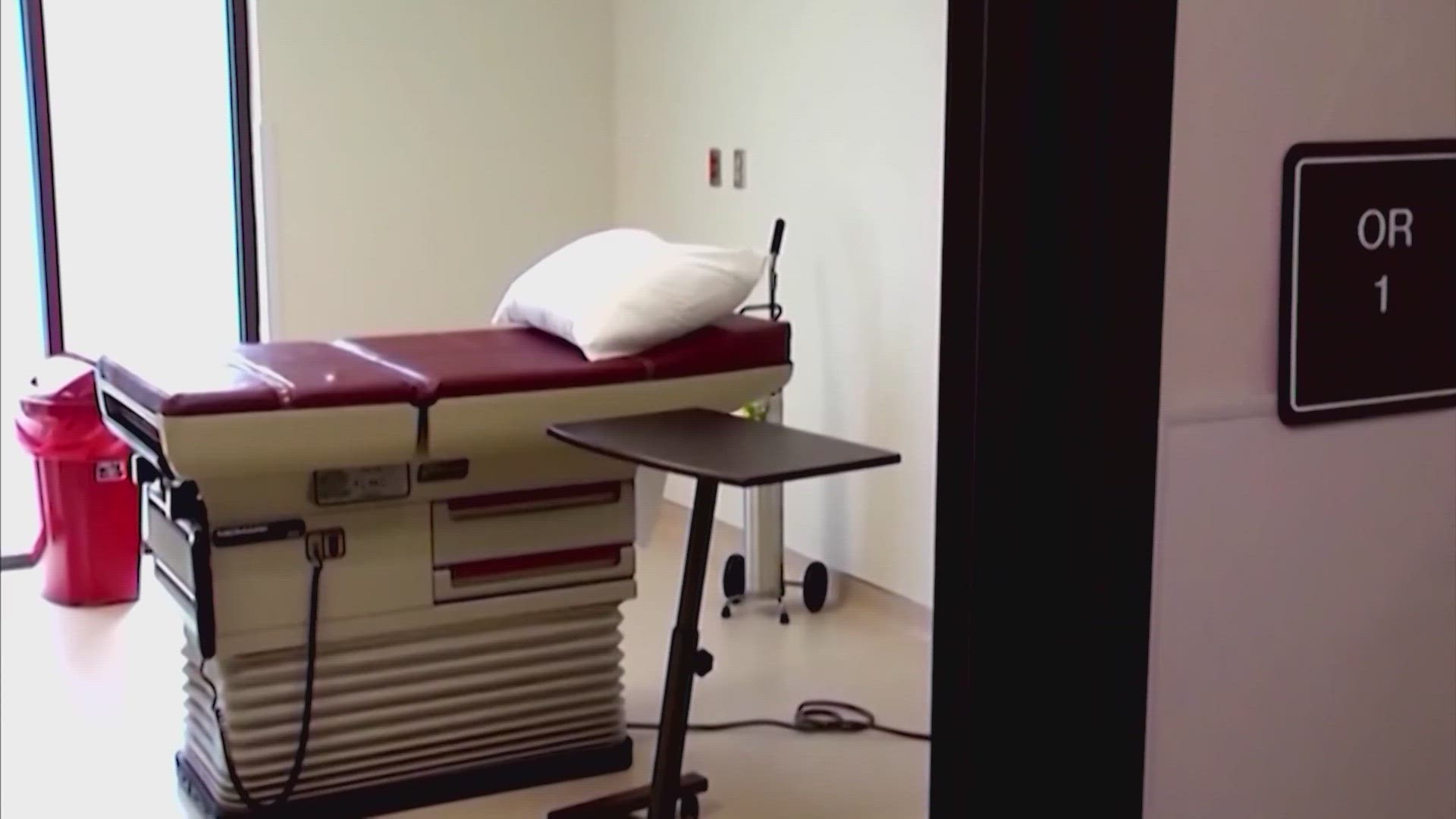AUSTIN, Texas — The Texas Medical Board discussed the state's near-total ban on abortions Friday morning.
The state law says abortions are only allowed when a mother's life is at risk, but doctors say it's unclear what qualifies as an exception.
This is the first time the board discussed the issue. The board voted to publish a new set of rules for public comment. It's important to note that the rules were not yet adopted. The public will have a minimum of 30 days to comment on the rules.
The proposed rules were not specific and would require doctors to try other means to save both the child and mother before abortion can be considered. While the rules did not specify medical conditions that would qualify as an exception, the new guidance says ending ectopic pregnancies would not be considered an abortion and therefore allowed under state law.
The board said it consulted with the Texas Attorney General's Office while drafting the proposed rules.
Watch the board read the full proposed rules:
Read the full proposed rules below:
A recent case that made national headlines and inspired the guidance involved a Texas woman named Kate Cox. Her unborn baby was diagnosed with a fatal condition and was given a week or less to live. The state Supreme Court ruled she did not qualify for a medical emergency abortion.
Cox ultimately left the state to end her pregnancy.
After that, attorneys filed a petition asking for the Texas Medical Board to issue clear guidance on when abortions would be permitted under state law.
The board said it expects to vote on the adoption of the rules sometime this summer or fall. Public comments can be submitted online through the Texas Medical Board's website.
After voting to publish the rules, board president Dr. Sherif Zaafran issued a statement that said, in part, the rules only provide clarification and that the state law does not grant it authority to regulate abortions. Read his full statement below:
"The Texas Medical Board has proposed rules to clarify how the state abortion ban exceptions apply to the Board’s enforcement process. This is the first step in what will be a rulemaking process that will allow the public to be heard and provide written comment to these proposals.
"In determining to go forward with the rulemaking process, the Board thoroughly analyzed the Administrative Procedures Act, the Health and Safety Code, and reviewed the series of recent court cases involving multiple provisions of the state’s abortion regulations.
“The proposed rules are written within the bounds, and definitions, of existing statutes to clarify what required criteria the Board expects to consider in the event it receives a related complaint.
“Importantly, the Board does not have the authority to change or amend any laws as written or create new statutory definitions in existing laws.
“While there may be expectations from some that the Board, as a state agency, should go further in clarifying the law as written by delineating specific conditions and scenarios that would qualify as exceptions, the Board has a narrow lane to operate in. Simply put, the Board does not have authority to regulate or prohibit abortion. The new law did not provide any new authority for the Board to begin regulation or prohibition of abortion, but rather continued to allow disciplinary actions for violations of this “other law” and that is why these rules focus on re-affirming the analysis and procedures that will be applied if a complaint is received.
“As physicians, we know the uniqueness of each patient is the very reason medicine is an art and our practice is not confined to a formula or list. It is indeed impossible to create any specific delineated list or catalogue of conditions that may arise in any given patient situation.
“Given the uniqueness of each patient, and their individual health, it is not only impractical, but is impossible to address the situations that may confront a patient and the treating physician. The Board also acknowledges that even if there were a ‘list’ it still would not be enforceable without going through our standard process because even though the same condition may exist, the impact to the pregnant woman and the unborn child’s health could be markedly different in each case. Therefore, the use of “reasonable medical judgment” does not lend itself to a list or formula but rather is completely and fully dependent upon the patient and the skill, training, and knowledge of the treating physician.
“The Board is confident that its existing processes and procedures are appropriate and adequate to handle any complaints in this area of medicine.
“The Board wants to assure patients and physicians that the agency’s complaint process related to abortions, and the exceptions to the prohibition on abortion, will be treated no differently than any patient care issue that comes before the Board.”

